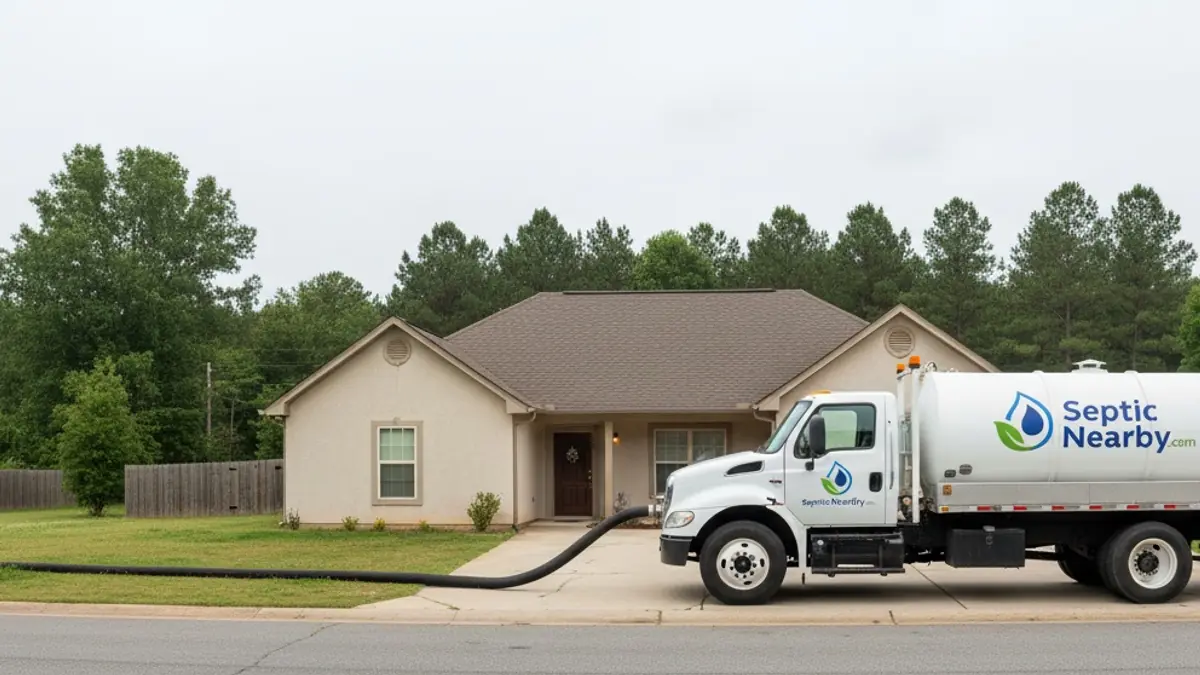Septic Pumping Services in Effingham County, GA
 Photo Illustrative
Photo Illustrative+1-470-9-SEPTIC
Operators available 7 AM - 9 PM
Licensed & Insured • No Obligation • Emergency Service Available
Cities We Serve in Effingham County
Local Septic System Factors in Effingham County
Managing Septic System Risk and Liability in Effingham County
For homeowners across Effingham, from the sprawling rural parcels near Clyo to the denser suburban developments in Rincon and Guyton, an on-site sewage management system is a critical utility. It is also a significant financial liability if mismanaged. Standard homeowner's insurance policies (HO-3, HO-5) are notoriously specific about water damage, and a failed septic system often falls into a category of explicitly excluded perils. The core of any coverage determination rests on the distinction between 'sudden and accidental' damage versus 'gradual' failure. A tree root abruptly crushing a pipe might trigger a claim, subject to your deductible. A drain field slowly failing over a decade due to soil compaction and biological overload will not. This is considered a maintenance issue, and claims for such preventable damage are invariably denied.
Understanding your policy's limitations is the first step in risk mitigation. Most policies exclude damage from water that backs up through sewers or drains. To address this coverage gap, a specific 'Water Backup and Sump Pump Overflow' endorsement, or rider, is essential. This supplemental coverage is not expensive, but it is not automatic; you must add it to your policy. Without this rider, the cost to remediate a sewage backup inside your home—including replacing flooring, drywall, and sanitizing the structure—falls entirely on you. The existence of this rider can be the difference between a manageable deductible and a five-figure out-of-pocket expense.
Documentation is your primary defense. A meticulous service log is as crucial as the policy itself. Every pump-out, inspection, and repair should be documented with dated invoices and detailed notes on the system's condition. When a claim is filed, the first request will be for your claim history and evidence of regular maintenance. An adjuster needs to see a pattern of responsible ownership. A log showing consistent pumping every 3-5 years by a reputable firm like Tri County Septic Service or Digs Septic Tank Services demonstrates diligence and helps refute any assertion of neglect. This documentation proves that a failure was an unforeseen event, not the result of deferred maintenance.
Effingham County’s specific environmental conditions add another layer of risk. The humid subtropical climate delivers intense rainfall, and the county’s soil profile—a mix of sandy loams and pockets of denser clay loam—directly impacts drain field performance. During wet seasons, saturated soils can prevent proper effluent dispersal, leading to system backups that are environmental issues, not covered events. Your system's design, its age, and its suitability for the specific soil on your lot in Meldrim or Eden are all factors in its long-term stability. Proactive assessment, not reactive repair, is the only sound financial strategy. An aging system is a known risk, and failure to budget for its eventual replacement is a common and costly oversight for property owners.
Frequently Asked Questions in Effingham County
Key septic regulations in Effingham
The Effingham Board of Health, operating under guidelines from the Georgia Department of Public Health, is the primary authority. Permits are mandatory for new system installations and major modifications or repairs (e.g., drain field or tank replacement). A routine tank pump-out is considered standard maintenance and does not require a permit.
Average pumping cost across Effingham
Costs for a standard septic tank pumping typically range from $325 to $600. The variation is driven by factors like tank size, travel distance to more remote properties in areas like Clyo, and site accessibility. Properties with long driveways, difficult-to-locate lids, or extensive landscaping around the tank may incur higher costs.
How often to pump septic systems in the county?
The general recommendation is every 3 to 5 years. However, this can change based on local conditions. Factors such as household size, water usage, and the use of a garbage disposal can necessitate more frequent pumping. Additionally, systems located in areas with a high water table or in poorly draining clay loam soils may require more diligent monitoring and service.
Weather and scheduling in Effingham
Effingham's rainy season, particularly from June through September, can cause significant delays and complications for septic work. Saturated soils make it difficult for heavy service trucks to access systems without causing yard damage. The best time to schedule major repairs or installations is during the drier fall and spring months.